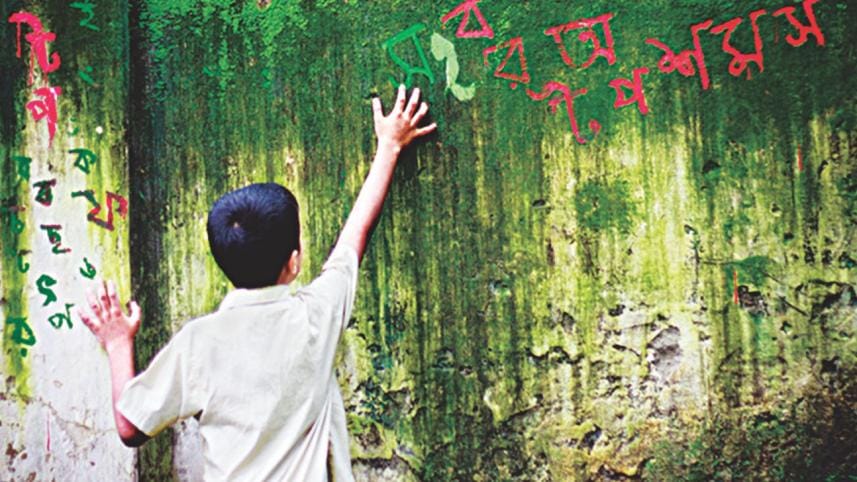Bangla is our first language, we should treat it as such

Seventy years after the events of February 21, how far have we really been able to live up to the anti-colonial spirit of our Language Movement? The answer to this question is by no means a simple one.
If we look at the Pakistan regime as a colonial rule, we could say that we have succeeded, since the Language Movement is considered to be the foundation of our independence struggle in any discourse. But if we consider the issue of colonialism from a broader perspective, there are more failures than successes. The reason for our failure is that we have not been able to establish a similar critical view in the case of English as we did for Urdu. Other non-English-speaking nations deal with the dominance of English, a global language, in their own ways, but we have not been able to come up with any mechanism yet to deal with it. From that perspective, we can say that we have not been able to live up to the spirit of our Language Movement.
There is much to be done when it comes to fully embodying the overarching spirit of our language struggle.
Given our history of struggle to give our own language, Bangla, its due respect, one may wonder: What ought to be its role in today's globalised world. Unfortunately, we have not been able to ensure proper use of Bangla in our country. This is because, as much as we have seen Bangla from a nationalist point of view, as much as we have seen it emotionally, we have not seen it as a language of practical use.
First, I want to problematise the use of the word "mother tongue" when referring to Bangla, and use instead the term "first language". There are many first languages in Bangladesh, but Bangla may be the language which is most in use.
First language can be used in offices, in higher education and for many other purposes. Although the use of Bangla is widespread in primary, secondary and even tertiary education, the same cannot be said in case of higher education and research. While common people use Bangla in their day-to-day life, we can't say the same for our elite neighbourhoods. The section of people who are able to use English for economic purposes are not actually using Bangla. They are also not interested in teaching their children Bangla effectively as a language to read or write. A language must have its own economic potential—something we have failed to achieve in the last 70 years. And it won't happen, unless we can establish Bangla as the first language at all levels of education, everywhere.
Establishing the use of Bangla in every sphere of society is important, because without doing so, we cannot make any plans for our entire population. What we need to do is use Bangla as the first language of instruction in education, while English should be made the second language. This doesn't mean English should be neglected, however. English should be taught systematically, so that students can achieve a good command over the English language through 12 years of schooling, which will ensure that they face no difficulty in using English when they pursue higher education. It is a wrong idea that our books in higher education should be in Bangla. Our students must be proficient in using English books, but the medium of instruction should be Bangla. All the research work must be done in Bangla as well. We should also use online platforms to teach English everywhere in the country. No one should feel that they are falling behind because they have no scope for learning the language.
If we can establish the use of Bangla in higher education and research, we will automatically see the changes we want everywhere. I think we should make a plan to teach at least 50 percent of the courses in higher education in Bangla by the next 20 years. If we can do that, we will be able to rid ourselves of the unnecessary worry of falling behind others.
As told to the Editorial Desk of The Daily Star.
Dr Mohammad Azam is a professor at the Department of Bangla in Dhaka University.



 For all latest news, follow The Daily Star's Google News channel.
For all latest news, follow The Daily Star's Google News channel.
Comments